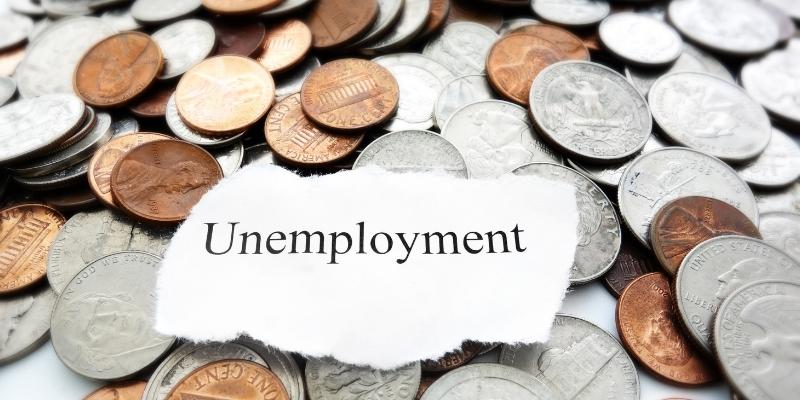People without jobs are frequently at a greater risk of experiencing various difficulties, such as an increased likelihood of having problems obtaining future employment and a reduction in income. Additionally, unemployment has an effect on society in general as well as the economy.
Those unemployed for an extended period are more likely to feel the effects of their situation and amplify the community-wide effects of unemployment. In this article, we discuss what it means to be unemployed as well as the impacts that unemployment has on an individual level, as well as on society and the economy.

What is the Cost Of Unemployment?
A person's sense of worth is diminished, which is perhaps the greatest consequence of unemployment. In any case, if they suffer, the economy as a whole would. When people are out of work, it can be disheartening. They may develop low levels of self-respect and confidence. Their drive to succeed in the workplace may suffer due to this. It's detrimental to the economy if they lose their skillsets while looking for work.
Additionally, the unemployed's health suffers due to these issues (and financial ones), placing a greater burden on the health care system. Because there are so many individuals currently without jobs, the economy as a whole has taken significant damage.
When someone has been out of work for an extended period, it becomes increasingly difficult to get employment. The impacts of unemployment follow a pattern that is very similar to this one. Those who experience unemployment face negative outcomes as a result. Some could try to find a new job, while others would rather hit the links.
However, most people will decrease their disposable income because benefits don't compare favorably to salary work. In general, people's standard of living will decline, and as a result, some may feel pushed to increase the amount of credit and consumer loans they use to make ends meet. They are less marketable as time goes on because they are not improving their skill set in any way during their time away from the workplace.
Impact Of Unemployment On An Individual
The economic (financial) and psychological implications of employment and unemployment were studied by contrasting the experiences of those employed and those unemployed. The findings are then utilized to compare the varied opinions of the two groups' members regarding their income and evaluate the benefits of working vs. not working. To make up for the drawbacks of working, the income from employment must be at least 9% higher than unemployment benefits.
The disparities in real income, however, are substantially greater. Individuals without jobs may face a variety of difficulties. The longer someone is out of work, the more difficult it becomes to overcome these obstacles.
Unemployed people cannot make as much money since they cannot work. Because a person no longer receives payment from a former job, the amount of money considered "disposable" decreases when that person is unemployed.
A person's physical health is yet another essential aspect of life that may suffer when unemployed. Being unemployed is a stressful situation that can lead to various medical illnesses, including headaches, high blood pressure, diabetes, heart disease, back discomfort, and an inability to sleep well. The frequent responses to the ensuing health concerns are an increase in doctor trips and medication consumption.

Cost On Society
The impacts of unemployment are not limited to the unemployed person; rather, they spread throughout the individual's community and the society in which they live. Even though the unemployment of a single person will not normally have a significant impact on society, high unemployment rates in certain regions can lead to higher rates of poverty and worse neighborhoods, which magnify the negative effects of unemployment on society.
It is especially true in regions where poverty rates are already high. Communities with high unemployment rates are likelier to have restricted work prospects, limited access to public transit, limited access to recreational activities and public services, fewer chances for public recreation, and underfunded schools. It is because there is a correlation between high unemployment rates and all of these other issues. It has led to the current situation.
Effects Of Unemployment To The Economy
Unemployment not only affects people on an individual and societal level, but it also has a direct and immediate effect on the economy. It is in addition to the fact that unemployment influences people.
According to the United States Bureau of Labor Statistics, unemployed people have lower discretionary income levels, leading to a lower contribution to the economy by selling services and goods and creating those goods and services.
Unemployed people often have less money to spend, which can lead to the loss of employment for other people if those people are employed in manufacturing products that the unemployed person previously purchased.
Additionally, more than 70 percent of the goods and services generated by the United States economy are purchased by individual customers. A decrease in goods sold within an economy may increase the unemployment rate. It is because people without jobs consume substantially fewer goods than those employed. Some companies' sales may fall as a result of this.
Conclusion:
Governments fret about inflation, but unemployment is a much more pressing problem. High unemployment rates are bad for business and the economy for more than just the obvious reason. They can cause social unrest and discontent among voters.
Yet another problem is that the negative impacts of unemployment often take time to surface and might linger for quite some time. For the economy to recover, consumers and businesses must have faith in the future. Similarly, workers must have faith in the future to make the training and savings investments necessary.
watch next


